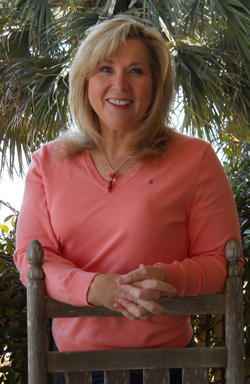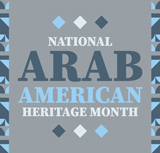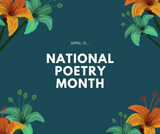 Karen Spears Zacharias has a thing for trailers. She grew up in one, smoked her first cigarette in one, fell in love (several different times) in one and even delivered her first child on her mama’s bed in an Aloha, Oregon trailer park.
Karen Spears Zacharias has a thing for trailers. She grew up in one, smoked her first cigarette in one, fell in love (several different times) in one and even delivered her first child on her mama’s bed in an Aloha, Oregon trailer park.
A former crime-beat reporter turned editorial writer, Zacharias’s work has been featured on National Public Radio, the New York Times, USA Today, CNN and the Washington Post, among others. She recently published her fourth book, Will Jesus Buy Me A Double Wide? (‘Cause I Need More Room for My Plasma TV). She writes from along the Columbia River in Hermiston, OR, and also lives part of the time at a spot along Fish River in Alabama. She’s the wife of a native Oregonian and the mother to four native Oregonians. She blogs here.
What was your inspiration for Double Wide – both the project and the title? To be honest, the title was initially intended as a joke. A couple of years ago, I was traveling from Fort Stewart, GA, to Fort Benning, GA while working on another book about the widows and children from the wars in Iraq and Afghanistan. As the daughter of a soldier killed in action, I was overwhelmed with grief. As I drove through rural Georgia I pronounced that one day I was going to write a funny book and title it Will Jesus Buy Me a Doublewide?
 A year later I read an article about a Georgia couple who won hundreds of millions in the lottery. They attributed their winnings to the goodness of God. I didn’t even know God was the gambling type, so I was both amused and annoyed by the remark. I passed the article, along with the title, to my editor, Andy Meisenheimer at Zondervan, and told him I wanted to write a book addressing that sort of ‘God Gimme’ theology.
A year later I read an article about a Georgia couple who won hundreds of millions in the lottery. They attributed their winnings to the goodness of God. I didn’t even know God was the gambling type, so I was both amused and annoyed by the remark. I passed the article, along with the title, to my editor, Andy Meisenheimer at Zondervan, and told him I wanted to write a book addressing that sort of ‘God Gimme’ theology.
Six weeks later, Andy called to tell me he’d sold the book.
‘What book?’ I asked, confused. There was no book. There wasn’t even a draft of a book. There wasn’t nothing more than a title and a bemusing story about a couple who won the lottery.
‘The Doublewide book,’ Andy said.
The book seems particularly relevant now. In September 2008, the nation’s economy took a suicidal plunge and what had started out to be a tongue-in-cheek book swiftly morphed into another serious subject matter, albeit, tempered by some very funny stories.
In Double Wide, each chapter is essentially a profile of a person who tells the story of what money and God look like in his or her life—from a multi-millionaire evangelist to a friend who was dying of breast cancer. But you refer to them all with titles instead of their names – The Evangelist, The Redhead, The Marine. Why did you decide to make the subjects of your profiles anonymous? Sarah, we’ve talked about some very personal matters, some even intimate, but I don’t have a clue how much money you have in your bank account. I don’t know how much money you make annually. I don’t know which charities you support or the sum of debt you owe. It is considered the height of rudeness to ask another person how she’s spent her money.
It might be telling that in our society we’ll go on national television and discuss the details of our sexual performance, or lack thereof, yet, if our own mother inquires about our finances, we tell her to mind her own business. Granting people anonymity gave me permission to be the nosy journalist, and it gave the participants a certain freedom to speak to the record about things they would not typically discuss.
 So your interviewees have the safety of speaking off-the-record. But that’s not why I initially decided to make the subjects of the profiles anonymous. I did it for literary reasons. My friend Sonny Brewer had just written a book, The Widow and the Tree. He’d asked me to read a draft and give him feedback. In his book, Brewer referred to some of his characters by titles instead of by their names. I loved the way Sonny’s book read so I just borrowed the idea from him. My friends often make me look smarter than I really am, and I love ‘em for that.
So your interviewees have the safety of speaking off-the-record. But that’s not why I initially decided to make the subjects of the profiles anonymous. I did it for literary reasons. My friend Sonny Brewer had just written a book, The Widow and the Tree. He’d asked me to read a draft and give him feedback. In his book, Brewer referred to some of his characters by titles instead of by their names. I loved the way Sonny’s book read so I just borrowed the idea from him. My friends often make me look smarter than I really am, and I love ‘em for that.
What are some of the things you learned in researching Double Wide? We have created a Sugar-Daddy God, whose biggest thrill is watching us gamble on his expense card. It’s a great theology, as long as everything is going our way, but where it falls apart is when you lose your job and can’t find another. Your home enters foreclosure or you fail to get the promotion you prayed so earnestly for. Or your child goes off to Haiti on a mission trip and dies in an earthquake. Or your employee robs you blind or you wake to find all your investments have gone kaput.
And then what? There can only be two responses to such a theology. First, you reason that God has failed to live up to his end of the bargain. He isn’t clothing you the way he did the lilies of the field. He is not giving you the abundant life he promised. He’s completely forgotten about his promise to prosper you. The more you consider all the ways God has failed to fulfill his part of the bargain the more angry at him you become.
Or two, you figure that the reason God hasn’t kept his promises is because of something you’ve failed to do. You haven’t tithed enough. You haven’t trusted enough. You haven’t stepped out in faith enough. You haven’t proclaimed his name enough. The more you consider all the ways you’ve failed God the more guilty you feel.
And you’re not speaking in hypotheticals. Many Christians are struggling with the guilt this theology creates. It’s a theology of God Gimme instead of Gimme God. There’s a Grand Canyon expanse between the two.
 Do you remember a time in your life when your attitude and perspective on God and materialism changed? Probably the first time I walked into a Wal-Mart store and saw Joel Osteen’s eyes following me from behind the cover of Your Best Life Now. Remember that creepy picture of a Jesus where he looks like some spaced out Grateful Dead groupie? Folks used to say no matter where you stood in a room Jesus’ eyes would follow you. Joel Osteen’s eyes do the same thing. Do you think Osteen’s watching me shop?
Do you remember a time in your life when your attitude and perspective on God and materialism changed? Probably the first time I walked into a Wal-Mart store and saw Joel Osteen’s eyes following me from behind the cover of Your Best Life Now. Remember that creepy picture of a Jesus where he looks like some spaced out Grateful Dead groupie? Folks used to say no matter where you stood in a room Jesus’ eyes would follow you. Joel Osteen’s eyes do the same thing. Do you think Osteen’s watching me shop?
In a word, Yes. My father was a Staff Sergeant, and any Sergeant worth his weight has a pretty fine-tuned BS detector. I can’t say for sure whether I inherited that or whether it’s learned behavior, but my father’s early death taught me as a young girl the value of a life well-lived. Since age 9, I’ve understood that life is short, far too short to waste it pursuing plastic and chrome. While I never want to go back to living in a 12 x 60 with half-a-dozen people the way I did after my father’s death, I understand that my living conditions are not a commentary on God’s love for me.
Double Wide is your fourth book. Have you developed a writing process that you apply to every book project? Yes. Thankfully, being a journalist at a community newspaper taught me all I needed to know about the writing process. Chiefly, write everything in a compelling way, get your facts straight and don’t even think about missing your deadline. I’ve found that the best way to do that is sitting down behind a keyboard with a phone nearby, for fact-checking and interviewing purposes, and keeping lots of fluids on hand to avoid dehydration.
Any thoughts on what your next writing project will be? I’ve just finished another memoir, The Shelter of Mockingbirds, about the murder of 3-year-old Karly Sheehan of Corvallis, Oregon.
Off the record, do you think Jesus will buy ME a double wide? I don’t think Jesus deals in U.S. Currency, so no.



Great interview. Love Karen’s books!